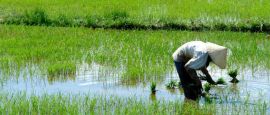Vietnam History, Language and Culture
History of Vietnam
The earliest known civilisation in Vietnam was the Dong Son culture, famed for its intricate bronze drums, which flourished around 1000 BC. By the 2nd century BC, northern Vietnam was under Chinese rule, a period that lasted for over a thousand years and left a lasting influence on language, governance, and philosophy. The Vietnamese regained independence in the 10th century, ushering in a succession of dynasties, including the Ly, Tran, and Le, who expanded the nation southward and established many of its cultural traditions.
In the 19th century, Vietnam became part of French Indochina, and colonial rule introduced new architecture, education, and industry, but also sparked nationalist movements. The struggle for independence led to the First Indochina War, ending in 1954 with the division of the country into North and South Vietnam. This set the stage for the Vietnam War, a devastating conflict that drew global attention and ended in 1975 with the reunification of the country under communist rule.
Since then, Vietnam has undergone a remarkable transformation. The Đổi Mới reforms of the late 1980s opened the economy and society to the world, leading to rapid growth and a renewed sense of national pride. Today, ancient traditions sit comfortably alongside modern aspirations, and the country's complex history continues to shape its identity and charm.
Did you know?
• Vietnam is home to the world's largest cave—Son Doong Cave in Phong Nha-Ke Bang National Park, so vast it has its own weather system and jungle inside.
• The Vietnamese language uses a Romanised script called Quốc Ngữ, developed by Portuguese missionaries in the 17th century and later popularised during French colonial rule.
• Water puppetry, an art form dating back to the 11th century, originated in the rice fields of northern Vietnam, where performances took place in flooded paddies with wooden puppets gliding over the water's surface.
Vietnam Culture
Buddhist (14%), Catholic (7%), Protestant (1%), Cao Dai (0.5%), Hoa Hao (0.5%), Other religions (0.3%), No religion or not specified (76%).
Note: Many Vietnamese people practise elements of Confucianism, Taoism, and folk religions alongside Buddhism, often without formal religious affiliation.
Language in Vietnam
The official language of Vietnam is Vietnamese. It is spoken throughout the country and uses a Romanised script known as Quốc Ngữ, which was developed in the 17th century.
English is increasingly spoken in tourist areas, especially among younger people and in larger cities, but it is less common in rural regions. Other minority languages are spoken by ethnic groups, including Tay, Khmer, Hmong, and Chinese dialects.




 You know where
You know where